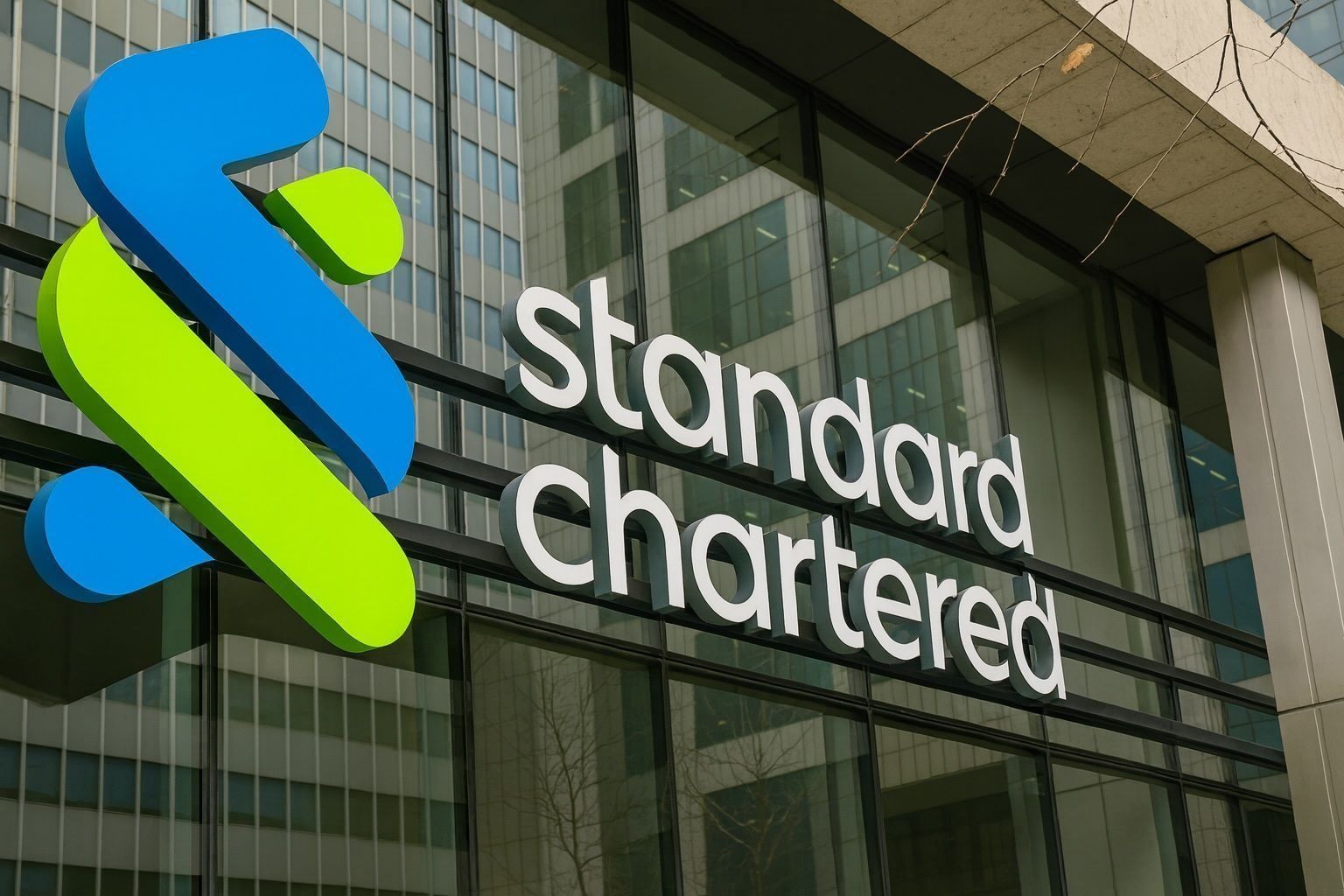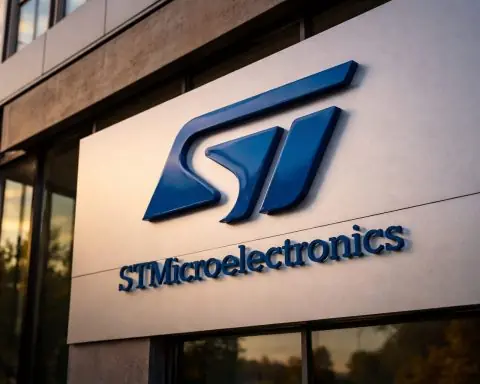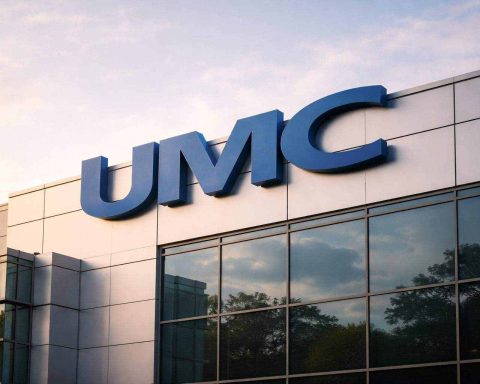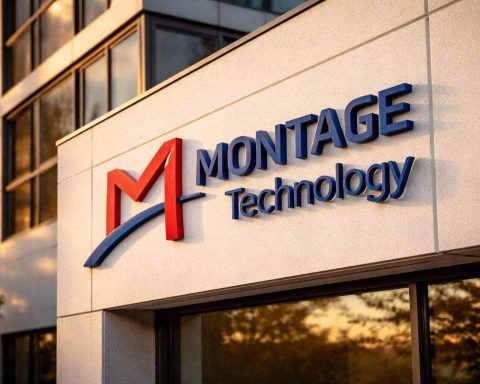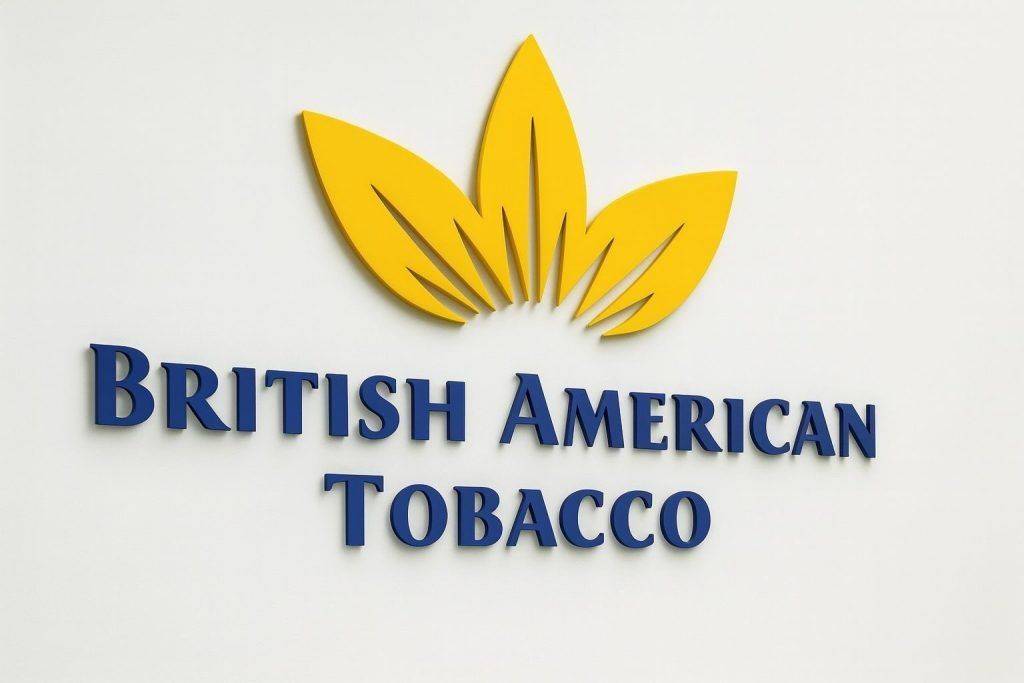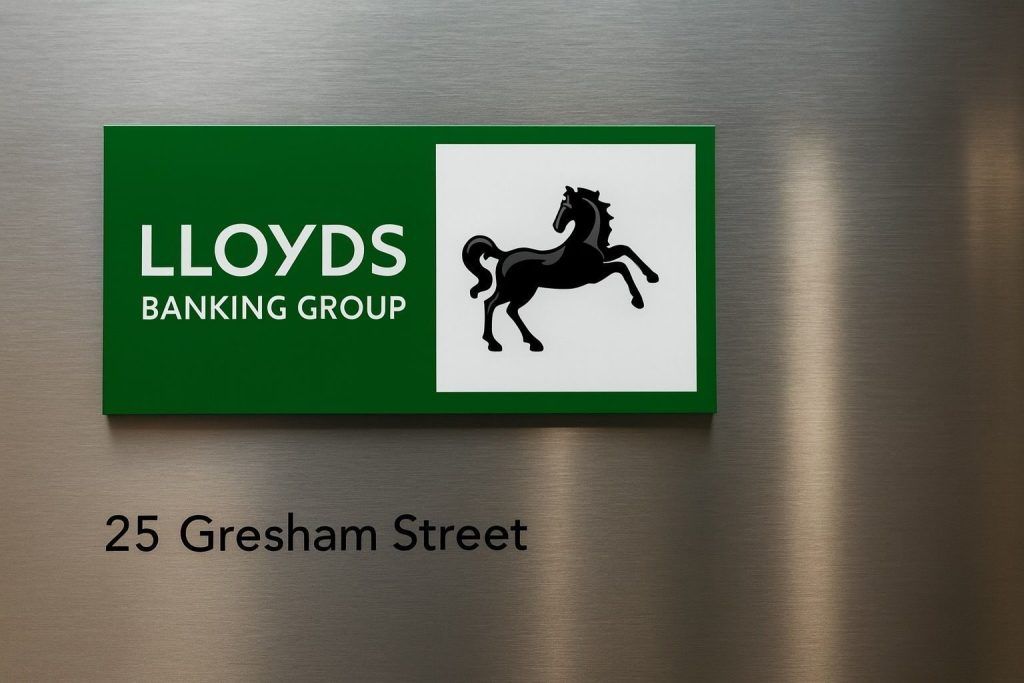On 24 November 2025, Standard Chartered PLC finds itself in a paradoxical position: facing a major legal challenge in Singapore linked to the 1MDB scandal, while simultaneously showcasing strength in capital, sustainability, and digital innovation across its key markets.
From a US$2.7 billion lawsuit being allowed to proceed, to early compliance with Nigeria’s new capital rules, a Green Halal pilot in Malaysia, fresh digital‑asset initiatives in Hong Kong, and a new private‑banking leadership appointment in North Asia, the London‑listed lender is at the centre of multiple storylines that matter to investors and regulators alike. 1
Singapore court clears US$2.7 billion 1MDB-linked lawsuit to proceed
The most immediate headline risk for Standard Chartered today comes from Singapore.
The Singapore High Court has dismissed the bank’s attempt to strike out a lawsuit seeking about US$2.7 billion in damages over its alleged role in the 1Malaysia Development Berhad (1MDB) fraud, allowing the case to proceed in full. 2
Court‑appointed liquidators acting for three 1MDB‑linked companies allege that between 2009 and 2013, Standard Chartered permitted more than 100 intrabank transfers that helped conceal the movement of misappropriated funds, allegedly ignoring red flags around suspicious activity. 3
Key points from today’s coverage:
- Case proceeds: The High Court’s decision means the full claim can be heard, rather than being struck out at a preliminary stage. Liquidators have described the ruling as an important step in their effort to recover money they say should belong to the Malaysian public. 2
- Standard Chartered’s response: The bank “disagrees with the decision” and has indicated it will file an appeal. It has previously said it emphatically rejects the liquidators’ claims and has characterised the entities involved as shell companies without legitimate business operations. 1
- Broader 1MDB context: The lawsuit is part of a wider global push to recoup funds linked to 1MDB, from which US investigators say roughly US$4.5 billion was stolen between 2009 and 2014. 2
For Standard Chartered, the key questions now are less about immediate capital impact and more about reputational risk, potential future financial penalties, and supervisory scrutiny. The planned appeal signals that the bank is preparing for a multi‑year legal process rather than a quick settlement.
Nigeria unit hits ₦200bn capital requirement ahead of deadline
In sharp contrast to the legal pressure in Singapore, Standard Chartered is sending a strong signal of commitment in Nigeria.
Standard Chartered Bank Nigeria Limited announced today that it has already met the Central Bank of Nigeria’s (CBN) new ₦200 billion minimum capital requirement for national commercial banks, well ahead of the March 2026 deadline. 4
According to the statement:
- Meeting the threshold early underscores what the bank calls a “formidable financial foundation” and a long‑term commitment to Nigeria’s economic development.
- CEO Dalu Ajene framed the early compliance as evidence of confidence in the resilience of Nigeria’s economy and in the bank’s role in supporting its transformation, including ambitions for a US$1 trillion economy by 2031. 4
- Executive Director and CFO Dayo Omolokun highlighted that the recapitalisation ahead of schedule reinforces Nigeria’s status as a “strategic market” for the Standard Chartered group, which has operated in the country for 26 years and supported clients with structured solutions amounting to billions of dollars. 4
For investors, the message is that while the group faces legal headwinds in one jurisdiction, its African franchise remains a growth and returns pillar, backed by fresh capital and regulatory alignment.
Green Halal and net‑zero: sustainability strategy across Malaysia and beyond
Serai Group pilots Standard Chartered’s Greening Halal Businesses Programme
In Malaysia, Standard Chartered Saadiq – the group’s Islamic banking arm – is linking sustainability more tightly to the country’s halal economy.
A Business Today Malaysia report confirms that Serai Group has become the first client under the pilot Greening Halal Businesses Programme, run by Standard Chartered Saadiq Malaysia in partnership with sustainability technology firm Pantas. 5
Key elements include:
- The programme is supported by the Ministry of Finance, Bank Negara Malaysia, the World Bank, SME Bank and the Islamic Development Bank, giving it significant institutional backing. 5
- Standard Chartered Saadiq Malaysia will identify SMEs that want to become both halal‑certified and more environmentally sustainable, giving them access to training and digital tools to measure and improve their sustainability performance. 5
- CEO Bilal Parvaiz emphasised the bank’s aim to help Malaysian SMEs move up the global halal value chain while contributing to national net‑zero ambitions by 2050. 5
This initiative positions Standard Chartered at the intersection of Islamic finance, SME development and climate action, particularly in a sector – halal food and services – that is strategically important to Malaysia.
Clean tech and transition finance: new insights from the bank
On its own corporate site, Standard Chartered today published a detailed insight piece, “Clean tech powering the next energy transition phase,” exploring how technologies such as solar, batteries, hydrogen, sustainable aviation fuel and carbon capture are reshaping the path to net zero. 6
Highlights from the article:
- Clean technologies are described as “the backbone of the energy transition”, but their maturity and bankability vary widely across markets and sectors. 6
- The bank stresses the role of transition finance – combining commercial, concessional and blended capital – to move projects from pilot stage to full commercial rollout.
- Standard Chartered says it has assembled a specialist clean‑tech and transition‑finance team, including former engineers and sector experts, to translate complex technology risk into structures investors can back. 6
The piece also reiterates the group’s commitment to net zero in its own operations by 2025 and in its financed emissions by 2050, reinforcing its positioning as a cross‑border transition‑finance partner. 6
Standard Chartered’s early role in green trade finance standards
Separately, a press release distributed via Antara on the ICC Principles for Sustainable Trade Finance notes that a second cohort of major European banks has endorsed the ICC’s Principles for Green Trade Finance. It explicitly references Standard Chartered among the inaugural endorsers in June 2025, underlining the bank’s early role in shaping what may become a global benchmark for sustainable trade finance. 7
Taken together, today’s sustainability‑related developments show a bank trying to anchor its growth narrative in transition finance, Islamic sustainable banking and trade‑related ESG standards, even as legacy conduct issues resurface in court.
Digital assets and DeFi: from institutional pillars to tokenised MMFs
Inside Standard Chartered’s digital‑asset roadmap
The Asian Banker today published an in‑depth feature titled “How Standard Chartered is institutionalising digital assets across banking”, based on an interview with Danielle Szetho, the bank’s head of digital asset portfolio and governance. 8
The article describes how the bank is embedding regulated digital‑asset capabilities into its core businesses through five operational pillars:
- Access – enabling institutional clients to participate in digital‑asset markets.
- Execution – building the infrastructure to settle tokenised instruments efficiently.
- Custody – securing digital assets to regulated standards.
- Tokenisation – creating digital representations of financial instruments via ventures like Libeara and pilots under Singapore’s Project Guardian.
- Interoperability – connecting different networks and jurisdictions so assets can move safely across systems. 8
The feature makes several points that matter for investors:
- Many of Standard Chartered’s early digital‑asset activities ran through independent ventures such as Zodia Custody and Zodia Markets, but the bank is now deliberately integrating successful capabilities back into its mainstream corporate and retail businesses. 8
- The bank expects digital assets to become a permanent part of the future financial system, highlighting ongoing work on stablecoins, tokenised deposits and cross‑border settlement infrastructure. 8
- It is investing heavily in regulatory engagement, particularly as Basel crypto‑asset rules and frameworks such as the EU’s MiCA and Singapore’s tokenisation initiatives begin to bite. 8
In other words, Standard Chartered is positioning itself as a regulated bridge between traditional balance‑sheet banking and tokenised finance, rather than a pure‑play crypto experiment.
New tokenised money‑market fund backed by Standard Chartered custody
Complementing that strategy, The Fintech Times reports today that Hong Kong‑based firm AlloyX has launched the Real Yield Token (RYT), a tokenised money‑market fund (MMF) that gives stablecoin holders access to institutional‑grade yields on the Polygon blockchain. The underlying regulated assets of the fund are custodied and overseen by Standard Chartered Bank (Hong Kong), which also acts as registrar. 9
According to the article:
- RYT uses a DeFi‑native “looping” strategy, allowing users to supply tokens as collateral and borrow against them to amplify utility and potential yield, while the underlying cash stays within regulated MMF structures. 9
- Standard Chartered’s custody role means issuance, reconciliation and cash management remain fully inside a regulated institutional framework, even as end‑users interact with DeFi protocols. 9
This launch is a concrete example of the bank’s digital‑asset thesis: institutional‑grade, regulated infrastructure wrapped around programmable, on‑chain products.
Private banking: new investment advisory head for Greater China and North Asia
Talent moves in wealth management are also on the agenda today.
Finews.asia reports that Standard Chartered’s global private bank has appointed Peter Horng as head of investment advisory and product advisory for Greater China and North Asia, succeeding Muska Chiu, who moves into a new role leading a team that advises ultra‑high‑net‑worth clients. 10
Key details:
- Horng brings more than 25 years of wealth‑management experience, most recently at DBS as Hong Kong head of investment products and advisory, with previous roles at Citibank, HSBC and UBS across New York and Hong Kong. 11
- The reshuffle suggests the bank is sharpening its focus on advisory quality and ultra‑wealthy client coverage in Greater China and North Asia – regions that remain central to its wealth‑franchise growth story despite geopolitical and macro uncertainty. 10
For Standard Chartered PLC shareholders, the move matters less for immediate numbers and more as a signal that the bank is continuing to invest in fee‑rich private banking even as it manages cost discipline elsewhere.
Capital management: buybacks, AI‑driven efficiency and market views on STAN.L
Share buyback: 485,412 shares purchased on 21 November
Regulatory news filed this morning shows that Standard Chartered is still actively returning capital via buybacks.
An RNS announcement summarised by Investegate confirms that on 21 November 2025 the group repurchased 485,412 ordinary shares as part of the buyback programme announced in July. The shares were bought at prices ranging from around 1,525.5p to 1,568.5p, with a volume‑weighted average of roughly 1,551.8p. Once cancelled, they will reduce the number of shares in issue to about 2.276 billion. 12
Cumulatively, Standard Chartered has now deployed roughly US$757 million into the current buyback, according to the same filing. 12
This underlines management’s message that, despite legacy legal issues, the balance sheet is strong enough to support both growth investment and ongoing capital returns.
AI‑enabled cost‑cutting: “Fit for Growth” and nearly 100 apps gone
Although dated yesterday, a Bloomberg‑sourced article on Moneyweb provides useful context for today’s capital and efficiency narrative.
In the piece, CFO Diego De Giorgi explains how Standard Chartered has used artificial intelligence to consolidate nearly 100 software applications, including rolling 55 different IT‑incident systems into one and replacing around 40 internal apps with a single “super app” for HR‑related processes. 13
The changes are part of the bank’s “Fit for Growth” restructuring programme, which comprises several hundred initiatives aimed at stripping out costs while funding growth. CEO Bill Winters is quoted as saying that AI tools are already changing how the bank monitors large volumes of transactions and manages risk. 13
For investors, this matters because sustained cost discipline is central to lifting returns on equity at a global bank that still trades at a modest valuation multiple versus some peers.
How the market is reading Standard Chartered today
A fresh stock note on Directorstalk Interviews this morning characterises Standard Chartered PLC (LSE: STAN) as a global banking giant with limited but positive upside from current levels. 14
According to the analysis:
- The shares were recently trading around the mid‑1500p level, near the top of their 52‑week range, after a strong run from below 900p over the past year. 14
- Analyst price targets cited in the note imply only a low‑single‑digit percentage upside from today’s price, suggesting that much of the recovery story may already be reflected in the valuation unless earnings or capital returns surprise on the upside. 14
Against that backdrop, today’s 1MDB headline adds an element of legal overhang, while the Nigeria recapitalisation, digital‑asset initiatives, sustainable‑finance positioning and ongoing buybacks support the investment case.
What today’s developments mean for Standard Chartered PLC
Pulling today’s strands together, several themes stand out for anyone following Standard Chartered PLC on 24 November 2025:
- Legal risk is back in focus.
The Singapore 1MDB ruling ensures that litigation linked to past conduct will remain in the spotlight. The bank intends to appeal, but the process could be lengthy and may invite continued regulatory and media scrutiny. 2 - Regulated capital and franchise commitment look solid.
Early compliance with Nigeria’s ₦200bn minimum capital requirement signals confidence in one of the group’s key African markets and supports its emerging‑markets growth narrative. 4 - Sustainability and Islamic finance are central to growth messaging.
From the Greening Halal Businesses Programme in Malaysia to thought‑leadership on clean tech and early involvement in ICC’s sustainable trade‑finance standards, the bank is doubling down on a “transition finance + ESG” story. 5 - Digital assets are moving from experiments to infrastructure.
The Asian Banker feature and the new tokenised MMF custodied in Hong Kong show that Standard Chartered wants to be the regulated gateway into tokenised finance, not just a passive observer of the crypto economy. 8 - Capital returns and cost discipline remain intact.
Ongoing buybacks, AI‑enabled cost consolidation and a structured “Fit for Growth” programme all support management’s aspiration to lift returns, even if the share price already reflects much of the recovery so far. 12
For readers tracking Standard Chartered PLC via Google News or Discover, the picture today is one of a bank juggling legacy legal issues with a forward‑looking strategy in emerging markets, sustainable finance and digital assets. Whether the market rewards that balancing act will depend on how the 1MDB litigation evolves and whether the bank can convert its thematic strengths into sustainably higher earnings and returns.
